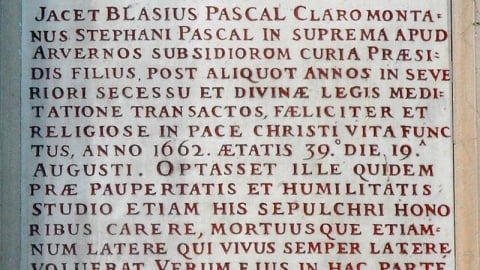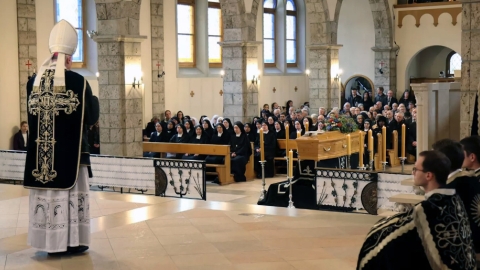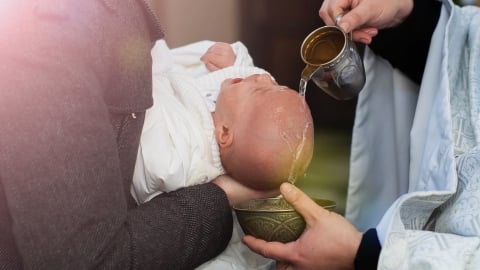The Life and Liturgical Role of the Righteous Job

On May 10, the Roman Catholic Church commemorates the Old Testament figure Job. Though Scripture provides limited information on his genealogy and life, the book that bears his name is one of the profoundest in the Bible and holds a special place in the Church’s liturgy.
God’s Faithful Servant
Among Eastern Christians, he is called Righteous Job, the Longsuffering. His name, which means “persecuted one,” has been debated over the centuries, with some hypothesizing it was given to him later to reinforce the Biblical book’s narrative meaning. Regardless, strong arguments have been made from the text that he lived before the time of Moses during the age of the Patriarchs. This reading is supported by the book’s cultural elements, which reflect those present in Genesis. At the same time, there is no direct evidence Job was acquainted with the Israelite religion, though both he and his companions worshipped the one true God.
As for Job’s physical location, the Bible says that he lived in the Land of Uz, which has been associated with either Aram in modern-day Syria or Edom in modern-day Jordan. The Greek translation of the Old Testament, known as the Septuagint (LXX), identifies Job as a grandson of Esau and a ruler of Edom, though this is not accepted universally. What is clear from the text, however, is that Job was one of the most important men of the land, blessed by God with children, wealth, and glory.
All of this would be taken from him with a terrible affliction of boils being added in addition. Through this painful and inexplicable adversity, Job remained faithful to God for seven long years, giving thanks to Him continually. While there are textual and interpretive differences concerning the range of Job’s suffering, all agree that his fortune was eventually restored twofold and that he died after a long life of 170 or 210 years. According to Eastern Christian tradition, Job reposed in 1350 B.C., though the precise date of his earthly departure is known only to God.
The poetic and philosophical elements of the Book of Job have been a source of conjecture, interpretation, and debate for thousands of years. What is not contested is that the Book is one of the most powerful in the Bible. It continues to instruct the faithful that all are called to suffer adversity and hardship patiently, always trusting in the Lord.
Job’s Liturgical Importance
In the traditional Roman liturgy, the Book of Job holds a special place in the Divine Office for All Souls Day (November 2). This makes sense given the Book’s emphasis on the precariousness of earthly prosperity and the ever-looming threat of death. Portions of the seventh, ninth, and fourteenth chapters of Job are read during the First Nocturn of Matins. Here is the first reading (Job 7:16-21):
Spare me, for my days are nothing.
What is a man that thou shouldst magnify him? or why dost thou set thy heart upon him?
Thou visitest him early in the morning, and thou provest him suddenly.
How long wilt thou not spare me, nor suffer me to swallow down my spittle?
I have sinned: what shall I do to thee, O keeper of men? why hast thou set me opposite to thee, and I am become burdensome to myself?
Why dost thou not remove my sin, and why dost thou not take away my iniquity? Behold now I shall sleep in the dust: and if thou seek me in the morning, I shall not be.
The Book of Job’s role in the liturgy for the dead is even more pronounced in the Officium defunctorum (Office of the Dead), which historically was recited before funerals, on the anniversary of a soul’s departure from this life, and as a private devotion. All three nocturns, which can be read together or spread throughout the week, contain readings from Job. Some of the responses, too, take inspiration from the Book of Job and Psalms.
℟. Remember, O God, that my life is wind.
* The eye of him that hath seen me shall see me no more.
℣. Out of the depths have I cried unto thee, O Lord! Lord, hear my voice.
℟. The eye of him that hath seen me shall see me no more.
In the Byzantine Rite, long excerpts from Job are read on Monday, Tuesday, and Wednesday at the Presanctified Liturgy of Pope St. Gregory the Great. These readings are intended to draw parallels between Job and Christ and the sufferings they endured. Interestingly, a verse from the LXX recension of Job which declares he “will rise again with those whom the Lord raises up,” is appended to the composite Gospel reading at Holy (Good) Friday Vespers when it speaks of the tombs being opened and the saints rising upon Christ’s salvific death on the cross (cf. Mt. 27:52).
In addition to being commemorated by Latin Catholics on May 10, Greek Catholics following the Byzantine Rite honor Job on May 6 (May 19 on the Julian Calendar). Coptic Catholics in Egypt honor Job on April 27 and August 29 while Armenian Catholics designate December 26 as his feast day.
sspx.org - 05/09/2023





